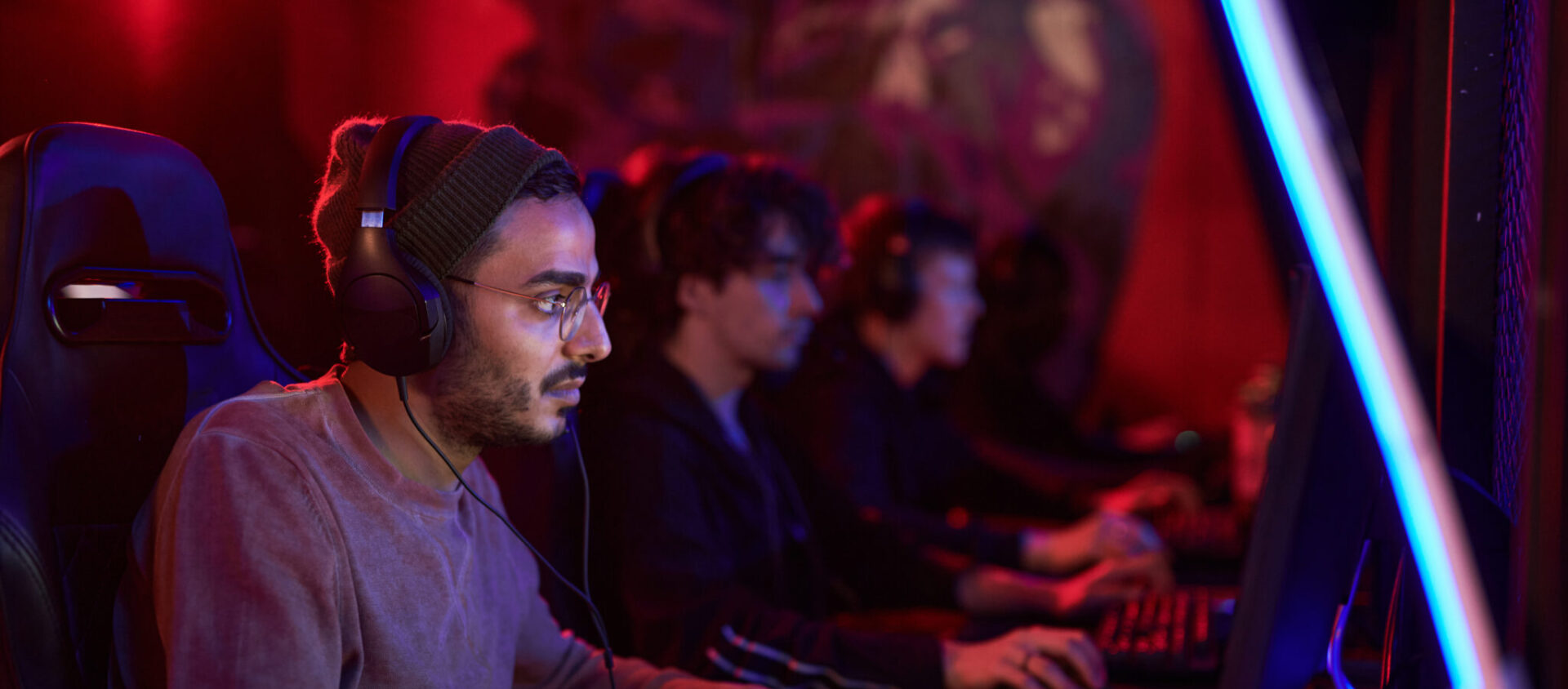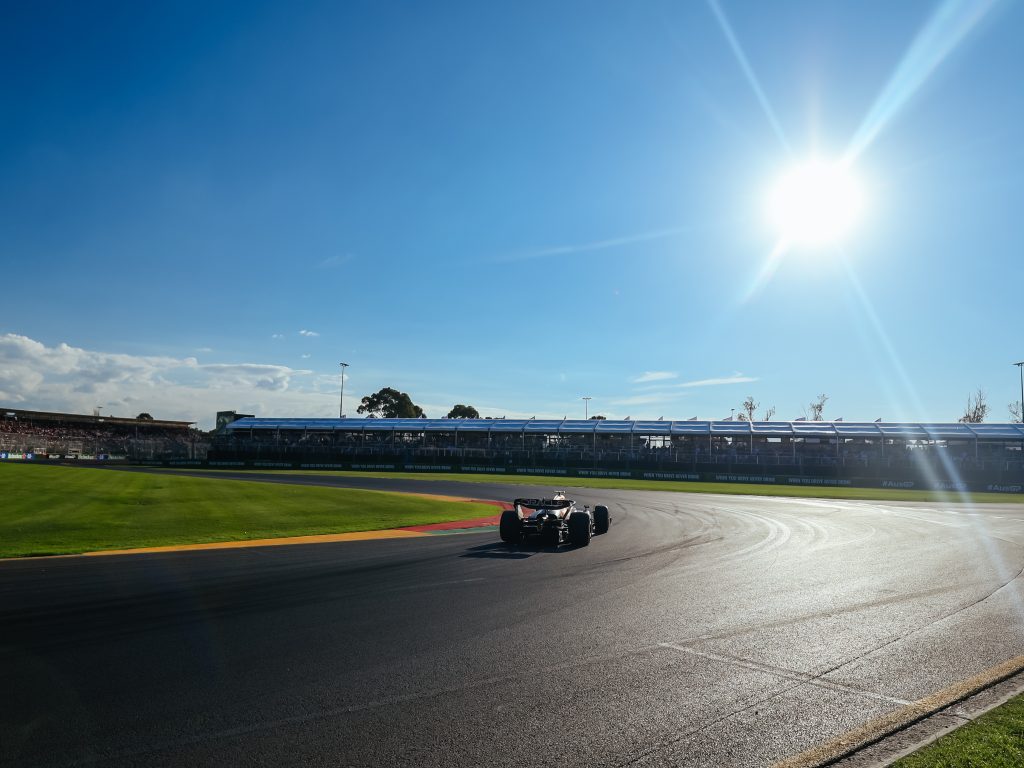
Introduction to e-Sports in the GCC
e-Sports, also referred to as electronic sports, competitive gaming, and professional gaming, are organized competitions where professional gamers compete in multiplayer video game events. These contests often feature structured, high stakes matches between skilled players1. Over the past decade, the GCC has witnessed a remarkable surge in the growth of e-Sports and gaming, transforming the region into a thriving hub.
This growing industry has attracted the attention of young people across the region, drawing in both participants and audiences. Additionally, it has received considerable interest from investors, sponsors, and various organizations. Gulf countries have young populations, with an average age of 27 and over 20% under 15 years old. These demographics, combined with growing access to the internet and gaming technology, fuel the region’s enthusiasm for e-Sports.
Economic Impact & Government Initiatives
A major driver behind the growth of e-Sports is the expanding access to high-speed internet and sophisticated gaming infrastructure. Nations like the Saudi Arabia, UAE and Qatar have significantly invested in technology and connectivity, equipping gamers with a seamless online experience that enables global competition. Consequently, there has been an increase in gamers from these countries participating in international tournaments and making a significant impact on the global e-Sports scene. Notably, significant investments are being made in the e-Sports and gaming industries, which are seen as vital for engaging the region’s youthful population.
In 2022, Saudi Arabia launched the National Gaming and Esports Strategy (NGES), aiming to transform the nation into a global hub for gaming and esports by 2030. This comprehensive strategy is designed to leverage the widespread passion for gaming within the Kingdom to foster new career and business opportunities across the entire gaming and esports value chain. By inviting everyone to participate, the strategy seeks to unlock significant economic benefits and career prospects, projecting an economic contribution of more than USD 13.3 Bn and the creation of over 39,000 jobs by 2030. The initiative focuses on several strategic areas including game production, tech development, education, and infrastructure. It aims not only to cultivate local talent and innovation through partnerships and academic programs but also to position Saudi Arabia as a key player in the global gaming and esports arenas. One notable example of the UAE’s commitment to advancing the e-Sports teams ecosystem is the DMCC Gaming Centre, launched by Dubai Multi Commodities Center (DMCC), the UAE’s free trade zone, in 2022. The center provides a platform for gaming industry professionals to connect, collaborate and explore new opportunities. Over 50 gaming companies are currently located in the DMCC Gaming Centre, including e-Sports teams.
Additionally, the UAE government supports the e-Sports industry through investments in programs such as the Dubai Program for Gaming 2033 (DPG 2033). This program is designed to make Dubai one of the top 10 global cities in the e-Sports industry by 2033. The plan includes creating 30,000 new jobs in the industry and aims to increase the industry’s contribution to Dubai’s GDP by nearly USD 1 Bn over the next decade. Through this program, Dubai has introduced the Dubai Gaming Visa as part of the DPG 2033 initiative, aiming to establish itself as a global gaming hub. This visa seeks to attract international talent, foster local expertise, create jobs, and promote innovation in the gaming industry, offering long-term residency and career opportunities.
Infrastructure & Major Events
The region has seen a rise in dedicated gaming arenas and e-Sports facilities. These venues provide gamers with state-of-the-art equipment, and a social space to connect with like-minded gaming enthusiasts. They also serve as a hub for hosting e-Sports tournaments, expanding the visibility of gaming in the region. Major e-Sports events, including the Intel Extreme Masters and ESL One, have been hosted in cities across the Gulf, highlighting the region’s emerging prominence in the global e-Sports landscape.
In Saudi Arabia, the government’s Vision 2030 initiative aims to diversify the economy and enhance cultural development, identifying e-Sports as a method to engage the nation’s youth and drive investment and innovation in the digital sector. Part of this strategy includes the construction of the Qiddiya City e-Sports facility, which has over 5,000 seats and aims to attract up to 10 million visitors annually by hosting regular tournaments and events. Additionally, the SEF Arena in Riyadh, the largest esports arena in the world, is set to host the prestigious Esports World Cup tournament between July-August 2024, which will comprise of 20 e-Sport competitions across multiple games and a combined prize pool of approximately USD 30 Mn.
Similarly, the UAE has established itself as a premier destination for e-Sports in the Middle East. Dubai has become a regional center for gaming and e-Sports events, supported by significant investments from Abu Dhabi. The city has hosted notable events such as the Dubai E-Sports Festival and the Middle East Games Con. With its dynamic gaming community and advanced infrastructure, Dubai has drawn gamers and industry professionals from across the globe.
Additionally, in Qatar, the Qatar e-Sports Federation has signed a Memorandum of Understanding (MOU) to launch a Dota 2 league starting in 2024. This league will feature three events with a total prize pool of USD 2.6 Mn. Dota 2 is a popular multiplayer online battle arena game known for its strategic depth and competitive team play.
Careers in Competitive Gaming
The rise of professional e-Sports events and teams in the region has created opportunities for gamers to pursue a career in competitive gaming. Additionally, investments in the e-Sports industry across the GCC have led to a rise in the number of professional e-Sports players. Additionally, investments in the e-Sports industry across the GCC have not only led to a rise in the number of professional e-Sports players but also fostered an ecosystem that normalizes competitive gaming as a career path for talented individuals due to the increasing competitive and training opportunities in the region.
The Saudi Esports Federation established an e-Sports academy to train professional players and develop the industry. The initiative is cultivating e-Sports talent in the nation through offering professional diploma courses in popular game titles such as Dota 2, Rocket League, Valorant, and Rainbow Six.
Prize money is a fundamental way for GCC esports players to earn income, mirroring traditional sports like football, golf or tennis. Players who rank high in tournaments receive a share of the prize pool. Moreover, recognizing the financial instability that reliance solely on prize money can create, esports organizations within the GCC have started to provide regular salaries to their players. This change ensures that players can maintain a stable income without relying solely on tournament winnings, easing financial pressures and enabling them to concentrate more on improving their skills.
Beyond prize money and salaries, sponsorships serve as another income stream for professional players and streamers. With the rise of e-Sports in the GCC, players who gain substantial visibility and develop large fanbases have become attractive targets for sponsorships. Brands outside the traditional gaming and e-Sports sectors are now entering the industry, offering sponsorship deals that significantly enhance players’ earnings. A notable instance is Mossad “Msdossary” Aldossary from Saudi Arabia, who secured a sponsorship with Redbull.21 22
Additionally, streaming and content creation provide professional players with opportunities to monetize their gameplay through advertising revenue, as well as increase interactions with fans, further diversifying their sources of income and enhancing their financial security.
Broadcasting Dynamics of GCC e-Sports
The increase in Twitch and YouTube Live viewership across the GCC highlights the region’s growing impact on the e-Sports industry. Twitch, a popular platform that allows users to stream their gameplay live, has emerged as a key platform for broadcasting major esports events in the GCC. As countries like Saudi Arabia, the UAE, and Bahrain continue to enhance their digital infrastructure, Twitch and YouTube Live play a vital role in connecting gamers and fans throughout the region and enabling the broadcast of large-scale local e-Sports competitions to a worldwide audience.
The 2024 GCC Esports League hosted in Saudi Arabia was broadcasted live on the official Twitch and YouTube channels of the Saudi Esports Federation, attracting thousands of online viewers globally. In addition, the 2024 Dubai Esports and Games Festival broadcasted on YouTube live attracting a global audience and featuring interactive sessions with prominent gamers and developers, which increased its reach and engagement.
Recently, coverage of GCC esports events has been set to extend beyond Twitch and YouTube Live to mainstream international broadcasters such as DAZN and Warner Bros Discovery. These partnerships aim to bring regionally held e-Sports competitions to a global audience, increasing visibility and engagement. By leveraging the extensive reach of these international platforms, GCC esports organizers are enabled to showcase local talent and events, attracting a wider range of viewers and sponsors. This shift reflects the growing recognition of e-Sports in the GCC and its potential to appeal to a diverse, global fanbase.
The upcoming Esports World Cup in Riyadh will be covered by over 50 international broadcasters, ensuring viewers from regions such as the US, India, Africa, South America, Korea, and China can watch the event. This broad network is part of a strategy to connect a diverse global audience and highlight Saudi Arabia’s active gaming community. The comprehensive coverage aims to provide clear and engaging viewing experiences, promoting the tournament’s competitive gaming while illustrating its significance in the global esports landscape.
Future Opportunities & Regional Collaboration
-
Unified Collaborative Landscape:
At the 2023 Next World Forum in Riyadh, hosted by the Saudi Esports Federation, over 2,500 stakeholders including CEOs, government officials, and industry leaders from gaming, technology, and sports gathered. A key development was the signing of an agreement by the six GCC countries to create the GCC Esports Federation. This initiative is set to enhance future opportunities for e-Sports in the region by promoting annual leagues, increasing participation and viewership, and further advancing the e-Sports landscape across the GCC.
-
Increased Investments & Infrastructure Development:
The expansion of e-Sports infrastructure and greater investments in the industry has given gaming a strong base on which to grow. It is anticipated that the popularity of the e-Sports scene will continue to develop, drawing more players, sponsors, and fans as the GCC region continues to invest in e-Sports and embrace the increasing popularity of gaming.
-
Improved Digital Literacy & Technology Skills:
The e-Sports industry in the GCC offers a future opportunity to improve digital literacy and technology skills. As e-Sports grows in popularity, it is likely to encourage more individuals to engage with technology. This interaction can help develop essential skills needed for high-level competition. Both professional and casual players stand to benefit as they interact with various gaming technologies and platforms and learn to analyze data and make strategic decisions.
-
Diversified Career Opportunities:
As e-Sports gains prominence in the GCC, it will generate more job opportunities throughout the value chain, including roles for professional gamers, coaches, broadcasting talent, event organizers, and technical support specialists. These career opportunities will not only provide direct employment but also contribute to a broader ecosystem of digital innovation in the GCC.
-
Elevated Viewership:
Elevated viewership in the GCC esports industry is a key opportunity, driven by high prize pool events like the Esports World Cup. With the introduction of additional high-stake tournaments, viewership is set to rise, enhancing the region’s profile as a competitive gaming hub. The increase in viewership is crucial for the GCC as it boosts the regional esports industry’s visibility, attracts international sponsors, and stimulates economic growth.
The booming e-Sports sector in the GCC is rapidly transforming the region into an influential hub within the global gaming industry. Supported by visionary government strategies, robust investments, and advanced technological infrastructure, the GCC is poised to lead in innovating and expanding the e-Sports ecosystem. This growth not only diversifies the regional economy but also sets a global precedent for how technology and collaborative efforts can elevate competitive gaming. As the GCC continues to harness these dynamics, it stands on the cusp of defining the future of e-Sports, promising exciting prospects for gamers, investors, and spectators alike. The future of e-Sports in the GCC looks not only promising but also transformative, as it drives forward both digital and cultural convergence on a global scale.
References:
- Middle East Briefing (2024)
- The Economic Times (2024)
- The Arab Gulf States Institute in Washington (2024)
- Coliseum (2024)
- Esports Charts (2024)
- Dubai Esports and Games Festival (2024)
- Middle East Film & Comic Con (2024)
- Sharjah.com (2024)
- Esports Insider (2024)
- GG Score (2024)
- Red Bull (2024)
- Twitch (2024)
- YouTube (2024)
- Broadcast (2024)
- Arab News (2024)
- U.AE (2023)
- Qiddiya (2023)
- Showdown (2023)
- Inside The Games (2023)
- Esports Insider (2023)
- Teknos (2023)
- Arabian Business (2023)
- International Finance (2023)
- LinkedIn (2022)
- Gulf Business (2021)
- Al Tamimi & Co (2018)
- AFK Gaming (n.d.)




